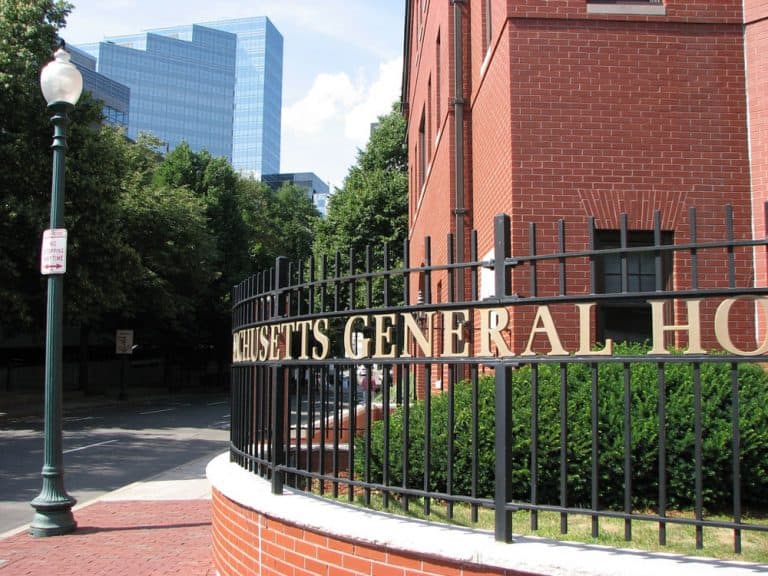Advertisement
As Mass General Marks Its Bicentennial, A Glimpse At Medicine's Evolution

Massachusetts General Hospital was founded in 1811, which makes this year the hospital's bicentennial. And this week, Mass General is opening the newest building on its ever-expanding campus: the Lunder Building, with 14 floors of additional beds and high-tech operating rooms.
Those two milestones seemed a fitting time to look at how medicine has evolved at Mass General, so WBUR's All Things Considered host Sacha Pfeiffer toured the hospital with Dr. John Herman, associate chief of psychiatry and an MGH history buff.
The tour started in the Bulfinch Building, which houses Mass General's original operating room, now called the Ether Dome because of a medical breakthrough there in 1846.
Sacha Pfeiffer: Right now we're looking at a fairly dramatic picture. It's called "Ether Day." A lot of blood. A man upright, his neck being cut open. Tell us what we're looking at.
Dr. John Herman: A Boston dentist had developed the use of ether for himself in a dental procedure. One of the MGH physicians had witnessed it and said, "Why don't you come and show us here?" There was great skepticism because there had been other demonstrations of efforts to make a patient insensitive to pain, which had failed.
And the key thing in this picture is that bulb of ether that the patient is inhaling.
Right. We're seeing the dentist holding the globe, where he has a sponge, which helps make the ether vapor. And that's the tipping point, where they are realizing at that point there is discovery.
So this, in a way, represents the beginning of modern medicine. What can you show us in the hospital that gets us to modern-day medicine, to show how far we've come?
Neuro-imaging comes to mind as something that has been breakthrough, particularly in my field, which is psychiatry and neuroscience. Let’s walk.
Just like X-rays allowed orthopods to see bones and EKGs allowed cardiologists to see how the heart was beating or not, finally we have the ability to watch a brain while it's working in real, live time. And if there is anything that is state of the art, it's functional neuro-imaging of the living, feeling, thinking brain.
We're now in the control room of a 3 Tesla magnet functional neuro-imaging device. We are looking through a large window at a patient who's actually undergoing a scan at this moment.
What is the sound itself?
Each one of those represents a data point which can be recombined to form an image. And when we're looking at brains in real time, we have been able to discover and uncover enormous mysteries about how the brain works in what we call the default state, when we think nothing's going on. One of the research projects is looking at that area of the brain responsible for triggering craving in addicts. This is where the excitement begins to build: we are able to teach the patient to reduce the active signal of the craving to reduce addiction and all of its consequences.
We just walked into the Mass General emergency department.
Yes. The emergency room is divided into a number of different areas — much less acute, and then some much more acute — and we're going to go through that which is closest to the entrance that we passed through. This is the highest-tech, most trauma-ready, so the most serious trauma cases would come here. You see probably 15 or 20 people concentrated in an area of less than 100 square feet, all looking at computer monitors hooked up to laboratories, EKG machines, and also staffed ready for whatever crisis might come.
Is it true that this used to be called the accident room?
That's right, and accidents would be the reason people would come. That's still a major reason, but they used to come on the back of wheel carts or in boats. Now they can sometimes come by helicopter.
Where did people go before Mass General was here for medical care?
They would stay home.
You mean no matter what was going on — they're having a heart attack, they're suffering from cancer, they broke a leg — you stay home?
What option might there be?
There really wasn't one?
There were no other options. The best predictor of good health in those days was good luck.
Or money to pay for a doctor to come to you?
Well, if a doctor knew what to do, and those were few and far between.
A far cry from the many medical choices we have today in Boston.
This program aired on June 20, 2011.
